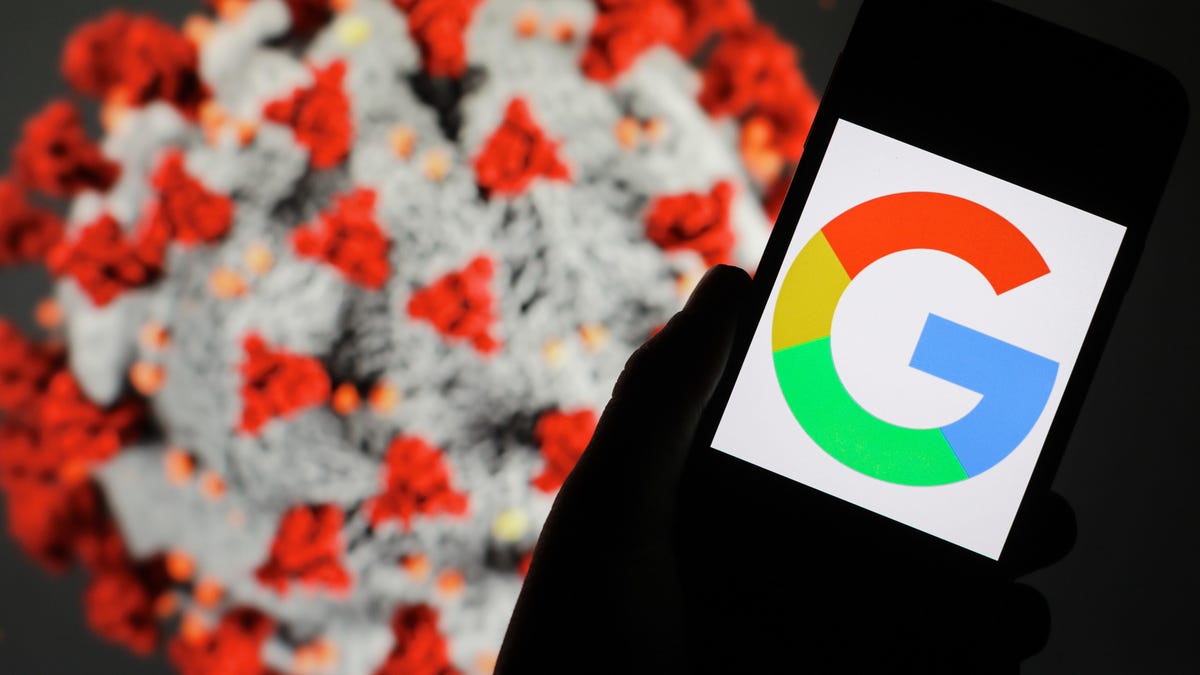Google, Facebook could help US track spread of coronavirus with phone location data
The companies have reportedly been in talks with the US government over using anonymous and aggregated data.

Google and Facebook are reportedly in talks with the US government over using location data to study coronavirus transmission.
Google , Facebook and other tech companies are in discussions with the federal government over how they can help fight the novel coronavirus with location data collected from people's phones , according to a report Tuesday by The Washington Post.
The data, which would be anonymous and aggregated, could track whether people are keeping enough distance from each other to curb the spread of Covid-19, the respiratory illness caused by the virus.
The strategy could be helpful in studying transmission trends for the virus. But it also comes at a time when big tech companies are already under intense scrutiny over their privacy policies and the trove of personal information they have on consumers.
Coronavirus updates
Facebook wouldn't say specifically if it's working with the US government but pointed to past work it's done on population density mapping with researchers at Harvard and the National Tsing Hua University in Taiwan.
"Disease Prevention Maps have helped organizations respond to health emergencies for nearly a year and we've heard from a number of governments that they're supportive of this work," Laura McGorman, policy lead for Facebook's Data for Good initiative, said in a statement. "In the coronavirus context, researchers and nonprofits can use the maps, which are built with aggregated and anonymized data that people opt in to share, to understand and help combat the spread of the virus."
Google didn't respond to a request for comment, but told the Washington Post any partnership wouldn't involve sharing a person's movement or individual location. "We're exploring ways that aggregated anonymized location information could help in the fight against COVID-19. One example could be helping health authorities determine the impact of social distancing, similar to the way we show popular restaurant times and traffic patterns in Google Maps," a spokesman told the Post.
The White House didn't respond to a request for comment.
A similar strategy is reportedly being implemented in other parts of the world effected by the virus. Israeli government officials approved a plan to use cell phone data to track the locations of people infected with the coronavirus and those they might have had contact with, multiple news agencies reported Tuesday.
Google has already been working with the government to respond to the coronavirus. On Sunday evening, Google's sister company Verily, which is focused on health care and life sciences, launched a website to give people information about coronavirus screening, though it is limited for now to two testing sites in the San Francisco Bay Area. The rollout followed a set of confusing announcements last week by Google and President Donald Trump.
Other tech companies said to be in talks with government agencies to use their technology to battle coronavirus include facial-recognition startup Clearview AI and data analytics firm Palantir. Clearview AI, which has come under criticism for selling its facial recognition app to US law enforcement, is in talks with state governments about using its technology to track infected patients, according to the Wall Street Journal.
Meanwhile, Palantir, which is rumored to have played a role in locating Osama bin Laden, is working with the CDC on data collection and data integration to track the disease, the Journal reported. Neither Clearview AI nor Palantir responded to requests for comment.
The discussions come as government, business and community leaders have made an increased effort to stop the spread of the virus. Schools have closed down, sports events have been canceled, and most public gatherings have been banned. In the San Francisco Bay Area, where many of the big tech companies are headquartered, a shelter-in-place policy was announced Monday, and will be in effect at least until April 7.

